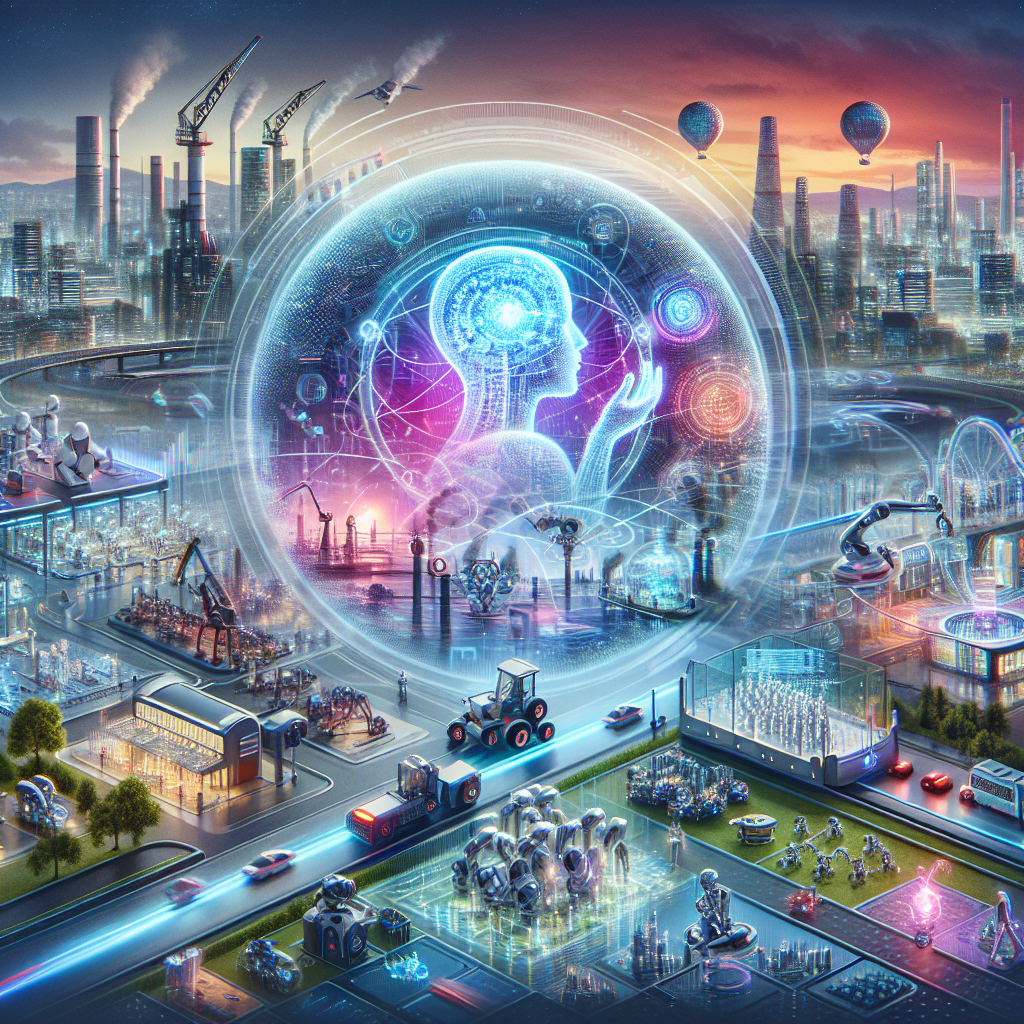From Sci-Fi to Reality: How AGI is Revolutionizing Industries
Artificial General Intelligence (AGI) has long been a staple of science fiction, portrayed as a futuristic technology that could potentially change the world as we know it. However, recent advancements in artificial intelligence (AI) have brought AGI closer to becoming a reality, revolutionizing industries across the globe in the process. In this article, we will explore the impact of AGI on various sectors and how it is reshaping the way we work, live, and interact with technology.
What is AGI?
AGI refers to a type of artificial intelligence that possesses the ability to understand, learn, and apply knowledge across a wide range of tasks and domains. Unlike narrow AI systems, which are designed for specific tasks such as image recognition or natural language processing, AGI aims to replicate human-level intelligence and cognitive capabilities. This includes reasoning, problem-solving, creativity, and emotional intelligence, among others.
The development of AGI has long been considered the holy grail of AI research, with the potential to revolutionize industries ranging from healthcare and finance to transportation and entertainment. While AGI is still in its early stages of development, recent breakthroughs in machine learning, deep learning, and neural networks have brought us closer to achieving this ambitious goal.
How is AGI Revolutionizing Industries?
1. Healthcare: AGI is transforming the healthcare industry by enabling more accurate diagnoses, personalized treatment plans, and predictive analytics. AI-powered systems can analyze vast amounts of medical data to identify patterns and trends that human doctors may overlook, leading to improved patient outcomes and reduced healthcare costs. In addition, AGI can assist in drug discovery, genetic research, and telemedicine, making healthcare more accessible and efficient for patients worldwide.
2. Finance: In the finance sector, AGI is being used to automate trading strategies, risk management, fraud detection, and customer service. AI algorithms can analyze market trends in real-time, identify profitable opportunities, and execute trades at lightning speed, giving financial institutions a competitive edge in the global market. AGI-powered chatbots and virtual assistants are also revolutionizing customer interactions, providing personalized recommendations, and support to clients 24/7.
3. Transportation: AGI is reshaping the transportation industry by enabling autonomous vehicles, traffic management systems, and logistics optimization. Self-driving cars powered by AI can navigate city streets, highways, and parking lots with precision, reducing accidents, congestion, and emissions in the process. AGI can also optimize supply chains, route planning, and delivery schedules, making transportation more efficient, sustainable, and cost-effective for businesses and consumers alike.
4. Entertainment: In the entertainment industry, AGI is revolutionizing content creation, virtual reality, and gaming experiences. AI algorithms can analyze user preferences, create personalized recommendations, and generate new music, art, and stories that resonate with audiences. Virtual assistants powered by AGI can also enhance interactive storytelling, immersive experiences, and social interactions in virtual worlds, blurring the line between reality and fantasy for users of all ages.
5. Education: AGI is transforming the education sector by enabling personalized learning, adaptive assessments, and virtual classrooms. AI algorithms can analyze student performance data, identify learning gaps, and tailor educational resources to individual needs and preferences. AGI-powered tutors and chatbots can also provide instant feedback, guidance, and support to students, teachers, and parents, improving learning outcomes and engagement in the classroom.
FAQs about AGI
Q: How is AGI different from narrow AI?
A: AGI aims to replicate human-level intelligence and cognitive capabilities across a wide range of tasks and domains, whereas narrow AI is designed for specific tasks such as image recognition or natural language processing.
Q: What are the ethical implications of AGI?
A: The development of AGI raises ethical concerns related to privacy, bias, accountability, and job displacement. It is important to establish guidelines, regulations, and safeguards to ensure the responsible and ethical use of AGI in society.
Q: How can businesses leverage AGI to gain a competitive advantage?
A: Businesses can leverage AGI to automate routine tasks, optimize processes, and enhance customer experiences. By investing in AI technologies and talent, companies can unlock new opportunities for innovation, growth, and success in the digital age.
Q: What are the challenges of developing AGI?
A: Developing AGI requires overcoming technical challenges related to data quality, model complexity, and computational power. It also requires addressing societal challenges related to ethics, bias, and job displacement, as AI technologies become more integrated into everyday life.
In conclusion, AGI is revolutionizing industries across the globe by enabling more intelligent, efficient, and personalized solutions to complex problems. From healthcare and finance to transportation and entertainment, AGI is reshaping the way we work, live, and interact with technology, paving the way for a more connected, automated, and intelligent future for all. As we continue to unlock the full potential of AGI, it is important to consider the ethical implications, challenges, and opportunities that come with this transformative technology, and to ensure that it is used responsibly and ethically for the benefit of society as a whole.

